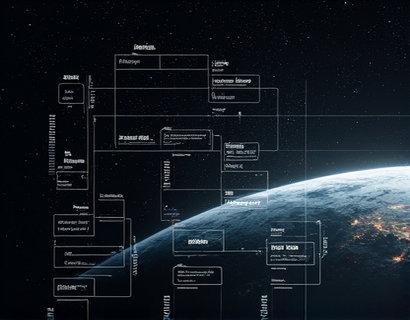AI-Driven Care Solutions for Virtual Entity Management: Elevating Live Caretaking with Advanced Technology
In the rapidly evolving digital landscape, the management of virtual entities has become a critical aspect of various industries, including gaming, virtual reality, and artificial intelligence. As developers and caretakers strive to create immersive and engaging experiences, the need for effective management solutions has never been more pressing. AI-driven care solutions are at the forefront of this transformation, offering innovative ways to optimize performance and well-being for virtual entities. This article explores the significance of AI-driven care solutions in virtual entity management, the technology behind these advancements, and their implications for developers and caretakers.
The Importance of Virtual Entity Management
Virtual entities, such as non-player characters (NPCs), digital avatars, and AI companions, play a vital role in enhancing user experiences across various platforms. Effective management of these entities is essential for ensuring they behave realistically, respond appropriately to user interactions, and contribute positively to the overall environment. As the complexity of virtual worlds increases, so does the need for sophisticated management solutions that can adapt to dynamic scenarios and user behaviors.
Understanding AI-Driven Care Solutions
AI-driven care solutions leverage advanced algorithms and machine learning techniques to monitor, analyze, and enhance the performance of virtual entities. These solutions are designed to provide real-time insights into the behavior and well-being of digital characters, enabling caretakers to make informed decisions about their management. By utilizing AI, developers can create more lifelike and responsive virtual entities that enhance user engagement and satisfaction.
Key Features of AI-Driven Care Solutions
- Real-Time Monitoring: AI-driven care solutions continuously monitor the behavior and performance of virtual entities, providing caretakers with valuable data on their status and interactions.
- Behavioral Analysis: Advanced algorithms analyze the actions and reactions of virtual entities, allowing for the identification of patterns and trends that can inform future development and management strategies.
- Adaptive Learning: AI systems can learn from user interactions and environmental changes, enabling virtual entities to adapt their behavior over time for improved realism and engagement.
- Performance Optimization: By analyzing data and identifying areas for improvement, AI-driven care solutions can optimize the performance of virtual entities, ensuring they operate at peak efficiency.
- Well-Being Assessment: These solutions assess the well-being of virtual entities, ensuring they remain balanced and responsive to user needs, which is crucial for maintaining user satisfaction.
Benefits of AI-Driven Care Solutions
The integration of AI-driven care solutions into virtual entity management offers numerous benefits for developers and caretakers. These advantages include:
Enhanced User Experience
By utilizing AI-driven care solutions, developers can create more engaging and interactive experiences for users. Virtual entities that respond realistically to user actions and emotions contribute to a more immersive environment, leading to increased user satisfaction and retention.
Increased Efficiency
AI-driven care solutions streamline the management process, allowing caretakers to focus on higher-level tasks rather than getting bogged down in routine monitoring and analysis. This increased efficiency can lead to faster development cycles and improved overall productivity.
Data-Driven Decision Making
With access to real-time data and insights, developers and caretakers can make informed decisions about the management of virtual entities. This data-driven approach enables more effective strategies for enhancing performance and well-being, ultimately leading to better outcomes for users.
Scalability
As virtual environments grow in complexity and scale, AI-driven care solutions can easily adapt to manage a larger number of virtual entities. This scalability ensures that developers can maintain high-quality experiences even as their projects expand.
Implementing AI-Driven Care Solutions
For developers and caretakers looking to implement AI-driven care solutions, several key steps should be considered:
1. Define Objectives
Before implementing an AI-driven care solution, it is essential to define clear objectives for what the solution should achieve. This may include improving user engagement, optimizing performance, or enhancing the realism of virtual entities.
2. Choose the Right Technology
Selecting the appropriate AI technology is crucial for the success of the implementation. Developers should consider factors such as the complexity of the virtual environment, the types of entities being managed, and the specific features required for effective care.
3. Integrate with Existing Systems
AI-driven care solutions should be integrated seamlessly with existing development and management systems. This integration ensures that data flows smoothly between different components, allowing for comprehensive monitoring and analysis.
4. Train the AI Models
Training AI models is a critical step in the implementation process. Developers must provide the necessary data for the AI to learn and adapt to the specific behaviors and characteristics of the virtual entities being managed.
5. Monitor and Adjust
Once the AI-driven care solution is implemented, continuous monitoring and adjustment are necessary to ensure optimal performance. Developers and caretakers should regularly review data and make adjustments as needed to improve the effectiveness of the solution.
Challenges in AI-Driven Care Solutions
While AI-driven care solutions offer numerous benefits, there are also challenges that developers and caretakers must navigate:
Data Privacy and Security
As AI systems collect and analyze data, concerns about data privacy and security arise. Developers must ensure that user data is protected and that AI systems comply with relevant regulations.
Complexity of Implementation
Implementing AI-driven care solutions can be complex and resource-intensive. Developers may face challenges in integrating new technologies with existing systems and ensuring that AI models are trained effectively.
Maintaining Realism
As virtual entities become more advanced, maintaining realism in their behavior becomes increasingly challenging. Developers must strike a balance between creating lifelike interactions and ensuring that virtual entities remain manageable and responsive.
The Future of AI-Driven Care Solutions
The future of AI-driven care solutions in virtual entity management is promising, with ongoing advancements in technology and algorithms. As AI continues to evolve, we can expect to see even more sophisticated solutions that enhance the management and care of virtual entities.
Emerging Trends
Several emerging trends are shaping the future of AI-driven care solutions:
- Increased Personalization: AI systems will become more adept at personalizing interactions based on user preferences and behaviors, leading to more tailored experiences.
- Enhanced Collaboration: AI-driven care solutions will facilitate better collaboration between developers and caretakers, allowing for more effective management strategies.
- Integration with Virtual Reality: As virtual reality technology advances, AI-driven care solutions will play a crucial role in managing virtual entities within immersive environments.
- Focus on Emotional Intelligence: Future AI systems will increasingly incorporate emotional intelligence, enabling virtual entities to respond to user emotions in a more nuanced and empathetic manner.
Conclusion
AI-driven care solutions are revolutionizing the management of virtual entities, providing developers and caretakers with the tools they need to optimize performance and well-being. By leveraging advanced algorithms and real-time data, these solutions enhance user experiences, increase efficiency, and enable data-driven decision-making. While challenges remain, the future of AI-driven care solutions is bright, with ongoing advancements promising even greater capabilities. As the digital landscape continues to evolve, embracing AI-driven care solutions will be essential for those involved in virtual entity management.











































